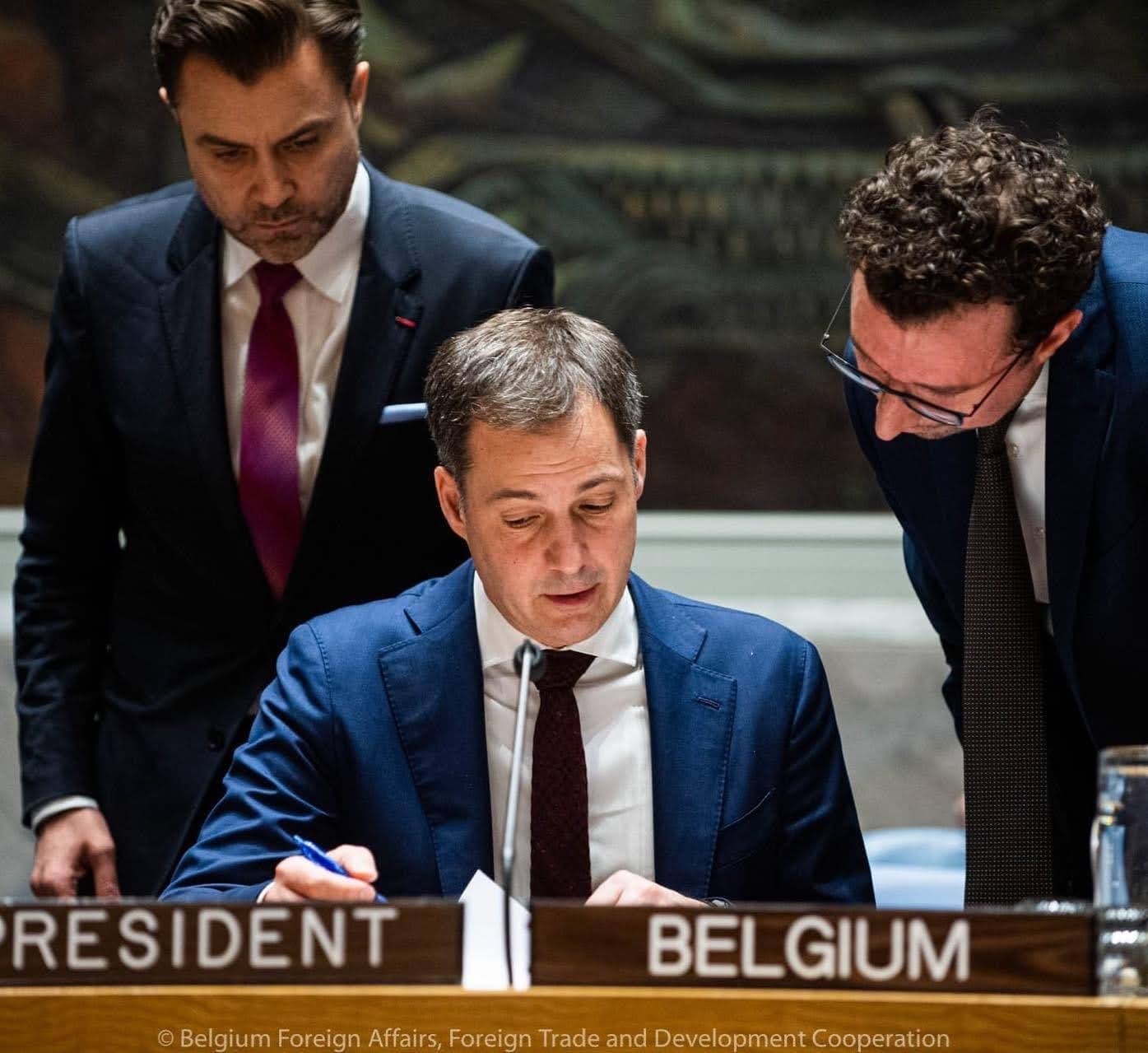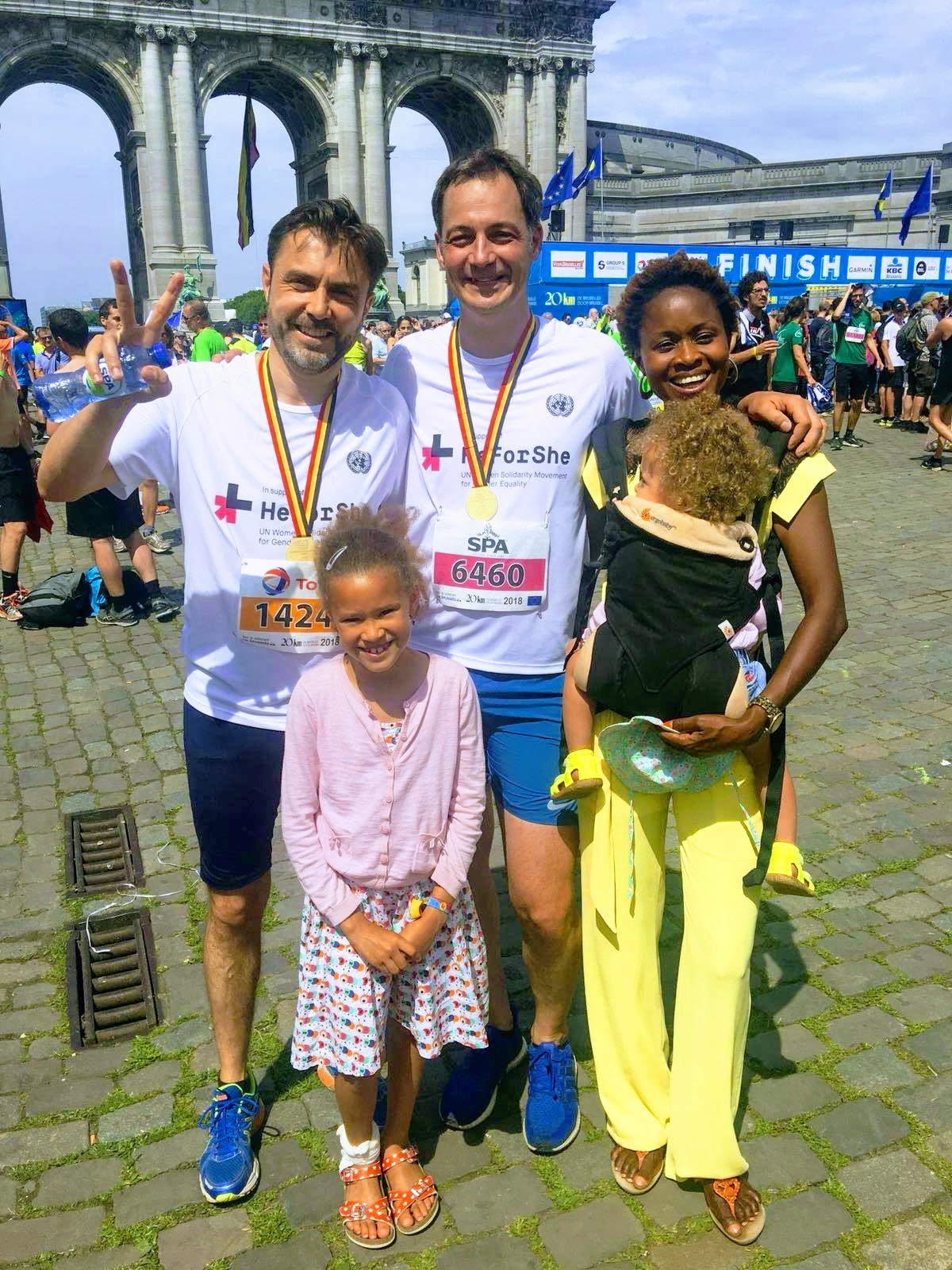Mentor & Professional Eric Willemaers (50) commits himself at all costs to a better world and therefore became a diplomat. Eric knows better than anyone how to build a strong partnership: 'Only when all parties are honest and authentic, one can reach constructive solutions'.
Do you have questions for Eric after reading this article? Or have you been captivated by his profile? Then be sure to contact him on LinkedIn.
What were your first experiences with foreign partnerships?
'First, I did a one-year internship with the Belgian Foreign Trade Service in Tunisia. I carried out a market study on the agro-industry there. Our service was based in the Belgian embassy. The work at the embassy soon made me itch to go into diplomacy as well. A few years later, my career abroad really took off. I became Country Representative in Cambodia for FOS, a development cooperation fund. In my role, I worked closely with local organisations representing vulnerable groups such as poor farmers. The organisations themselves were very fragile due to the political situation in Cambodia. Some organisations were targeted by local authorities; it was not unusual for trade union leaders to be pursued or murdered. It is therefore important to deal with these partners in a dignified and respectful way and to support them from the bottom up. The more fragile the situation, the more important it is for a foreign organisation to listen to local needs. The best experts are not us, but the local organisations and people. You must avoid local NGOs becoming a plaything in our Western political reality. People in Cambodia just want to be helped.'
After your experience in Cambodia, you switched from an NGO to a Belgian government organisation in Congo. How did the partnership go in this new context?;
'In Cambodia, I had to deal with a partnership between a Belgian NGO and local civil society, so you tend to adopt a rather defensive attitude towards the government. Which I regret, because if you want to reach solutions it is crucial that you all work together. In Congo, the situation was different because it was a partnership between two governments. The challenging thing was that the Congolese government then did not always take good governance and human rights very seriously. So you are working with both friend and foe. But you have no choice but to join forces. That is why it is important to keep an eye on the after-effects and benefits; if the former gets the better of you, you have to dare to put the cooperation on hold. In an imperfect environment you have to be realistic.'
'Local anchoring is crucial for a good partnership'
'In my free time in Congo, I spent most of my time with the local population. This local anchoring is crucial for a good partnership. In a professional context, people too often tell you what you want to hear. Only when you're in contact with people do you discover the real stories and what is alive in the population. I made friendships for life. Some of them I bumped into again in New York: Jupiter & Owkess, for example, which was on Barack Obama's annual playlist in 2018, and KOKOKO!, which represented Congolese culture with their flying tunes at Couleur Café in 2019. Those local connections are partnerships that give more insight into the reality of the country than any study.'
How did you end up in your current position at the United Nations in New York?
'Just before New York, I started working as Country Programme Advisor in the office of then Deputy Minister Alexander Decroo. The team, the minister and the speed of the work made it the most fun and exciting years of my career. At the end of the government's term, I went looking for a new position. As a diplomat, you have to draw up a shortlist of available countries and positions you want to go to. The executive committee decides on that basis where you will be placed. I finally got the chance to join the Belgian mission to the United Nations (UN) in New York as Minister-Counsellor for Economic and Social Affairs.'
The UN is, of course, a huge body with many countries as members. Were those partnerships more challenging?
'The big difference at the UN is that you work in global multilateral partnerships, whereas in my previous positions the partnerships were mostly bilateral between two countries or organisations. That means you have to take more factors and actors into account. You have to be aware that not everyone sits at the table with the best of intentions. Many donor countries call for more investments, for example in agriculture. But at the same time, some lack the political will to change anything themselves and undermine their own agricultural system by allowing farmland to be polluted or being bought up by foreign cooperatives. In contrast to bilateral situations, it is much more complex to point this out to them at the UN because you are not in a one-on-one context, so your arguments and confrontations are immediately public for other countries.'
During negotiations, you have to be careful not to post anything in the wrong WhatsApp group.
'It is extremely busy here. Working days of 12 hours are not exceptional. We sometimes have marathon meetings where we only sleep a few hours a night. I spend probably ⅔ of the day in meetings. This means that you can't help but answer emails and Whatsapps in the meantime. By the way, we use Whatsapp for a lot of negotiations instead of e-mail. You just have to make sure that you don't accidentally post anything in the wrong group.' (laughs)

What elements are crucial for smooth partnerships?
'Authenticity is key. You have to be authentic towards yourself and who you are, but also in your attitude towards others. It is important that you respect the authenticity of your partners. If they are not authentic, you have to dare to see through that. Only when all parties are honest and authentic can you reach constructive solutions.'
How do you see the future of development cooperation?
'Ever since my time in Congo, I have been trying to open up the field of development cooperation. It is too isolated, although you can't see it separately from the political setting. Without political will, you can't change anything constructively. My aim then, and now at the UN, is to bring different domains together when it comes to development cooperation. That means focusing on partnerships, with and in different domains such as politics and the private sector.'
What aspects of your job give you satisfaction?
'Since I was 14, my motivation has remained unchanged: to contribute positively to the fate of others and to do what I love. Whether it is giving after-school guidance to children in Molenbeek or meeting marathons in New York: in everything I do, I always look for meaning. In concrete terms, you can translate that into the realisation of the 17 Sustainable Development Goals of the UN. Bringing the world one step closer to those goals is what I do.'
Will our world continue to live in partnership? How do you see that?
'Everything depends on perspective, of course. People may be improving on average, but there are still millions of people living in poverty and unfair conditions. Trump was a big threat to multilateral partnerships, but we have weathered that well. The biggest threat today is China, and we should dare to name it. China violates fundamental UN values by applying their own interpretation to them. In the area of climate, they show themselves to be allies, but at the same time they are clearing forests in Asia and Africa. Nevertheless, I am optimistic that we are technologically and politically innovative enough to continue to guarantee smooth cooperation for a better future.
About your studies and your purpose
Why did you choose to study Business Engineering?
'I hesitated until the day I enrolled. From home I was encouraged to study Civil Engineering, but I found that too scary. From a young age, I had a strong interest in society. Business Engineering was the perfect compromise between the mathematics of Civil Engineering and my social interests. It is a broad program that allows you to sample all kinds of things, and that appealed to me.'
How did you discover your purpose? Do you have tips for students?
'Give yourself the chance to discover what you like to do and what you are good at. During those five years, I went looking for what I really wanted. The best way to discover what you want, is through experience. During my studies, I committed myself to development cooperation, I was a member of the study group of ‘Vrij Onderzoek’ and I was a member of the social council of the VUB. But I also gave six years of after-school guidance to primary school children in Molenbeek. Even then, I was confronted with inequality and it was a fascinating cultural exchange that stimulated me to continue in that direction. That cultural exchange also manifested itself during my trips to the Middle East and South-East Asia; the pretty pictures did not appeal to me so much, I wanted to experience the local culture each time. All those experiences eventually led me to want to make a social change as a diplomat later on.'

Do you want to study a Master in Business Engineering, just like Eric? Click here. Do you have questions for Eric after reading this article? Or have you been captivated by his profile? Then be sure to contact him on LinkedIn.
Here you can find other inspiring stories about partnerships.#TheWorldNeedsYou